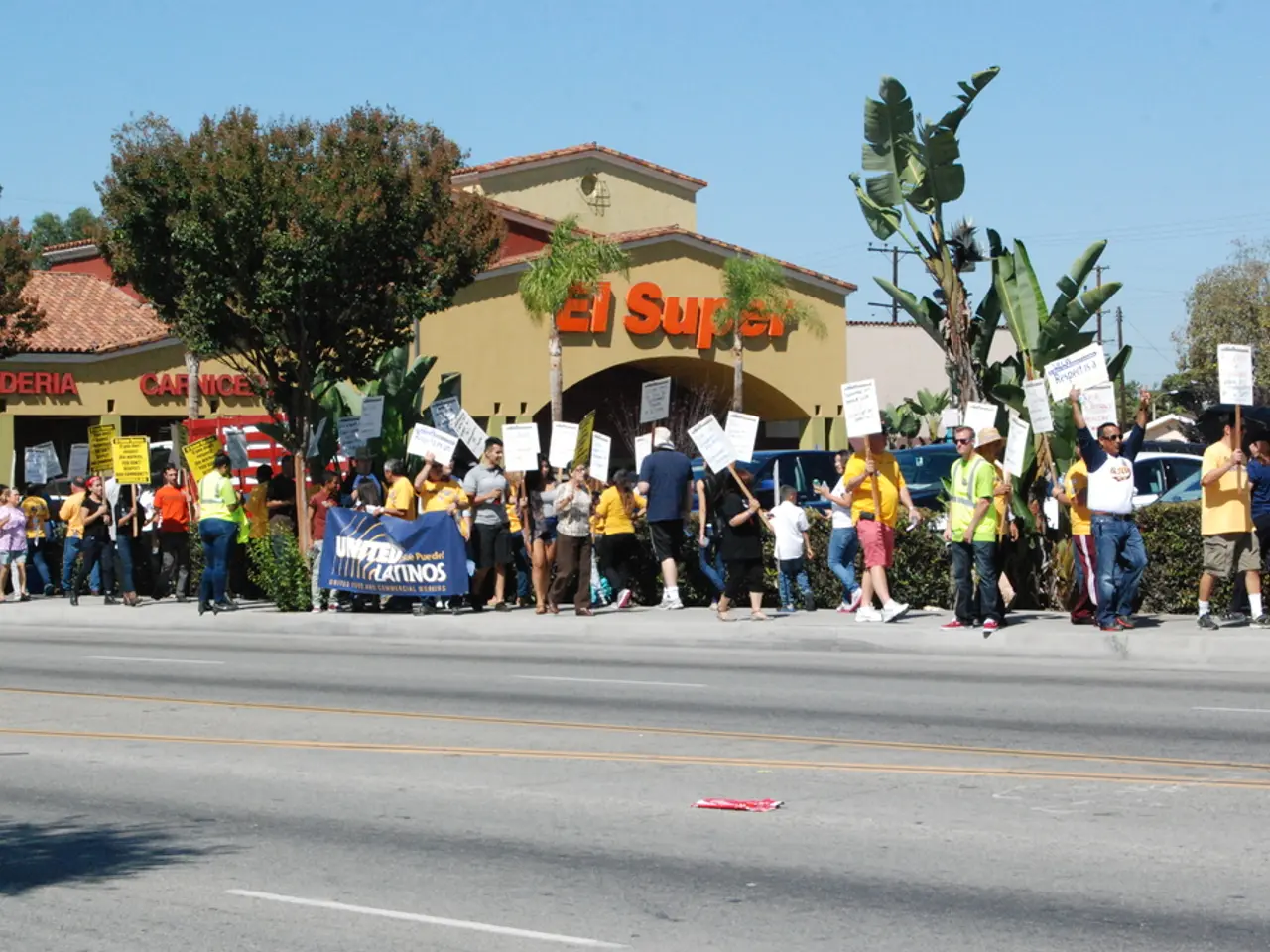Evolving Landscape of Scottish Political Landscape
In a surprising turn of events, the 2025 Scottish Parliament by-election in Hamilton, Larkhall, and Stonehouse saw a significant shift in the political landscape, with Reform UK surging to 26% of the vote. This rise, previously unseen in Scotland, may signal a profound political realignment.
The by-election victory came amidst internal turmoil within Reform UK, as its chairman, Zia Yusuf, resigned on the day of the vote, highlighting the party's internal instability. Despite these challenges, Reform UK's appeal appears to be tapping into deeper discontents with the political establishment.
Reform UK, originally known as the Brexit Party, was founded by Nigel Farage and others in 2019 as a right-wing populist party supporting Brexit. In October 2020, the party renamed itself to Reform UK, focusing on opposing COVID-19 lockdowns and advocating for reforms of UK governance structures like the BBC and House of Lords.
While Reform UK has made significant strides in England and Wales, its impact in Scotland remains limited. Unlike its rising profile in former industrial towns in England, Reform UK "lacks the punch it has in England or Wales" within Scottish politics.
The traditional political landscape in Scotland has instead been more affected by internal issues within the SNP and Labour’s challenges, with Reform UK so far a less significant factor. However, the Hamilton by-election has upended assumptions about the impermeability of Scottish politics to Farage-style populism.
The SNP's strategy to position Reform UK as its principal opponent may have inadvertently legitimized and amplified Reform's appeal among disillusioned voters. This strategy risks casting the SNP as the main target of anti-establishment mobilization, potentially weakening its anti-establishment message.
The Conservatives endured a brutal collapse in the by-election, falling from 18% to just 6%. Labour's share of the vote also fell by two points compared to the 2021 Holyrood election. The SNP, after nearly two decades in power, has increasingly resembles the status quo it once opposed, which may make its anti-establishment message resonate.
However, Reform UK's organisational depth, local infrastructure, and ability to adapt its rhetoric to a Scottish context appear lacking, which may hinder its longer-term viability north of the border. The current political landscape in Scotland remains more affected by SNP controversies and Labour’s struggles than by Reform UK's influence.
Despite the setbacks, Reform UK's unexpected surge in the Hamilton by-election serves as a reminder of the shifting political dynamics in Scotland. As the party continues to adapt and grow, it remains to be seen how it will impact the traditional party dynamics in the future.
Reform UK's unexpected surge in the Hamilton by-election, despite internal instabilities, suggests that the party's appeal may be tapping into general-news discontents with the political establishment in Scotland, potentially redefining the political landscape of Scotland. The by-election win for Reform UK, amidst the turbulent dynamics within traditional parties like the SNP and Labour, highlights the growing importance of politics in Scotland beyond just these parties.





